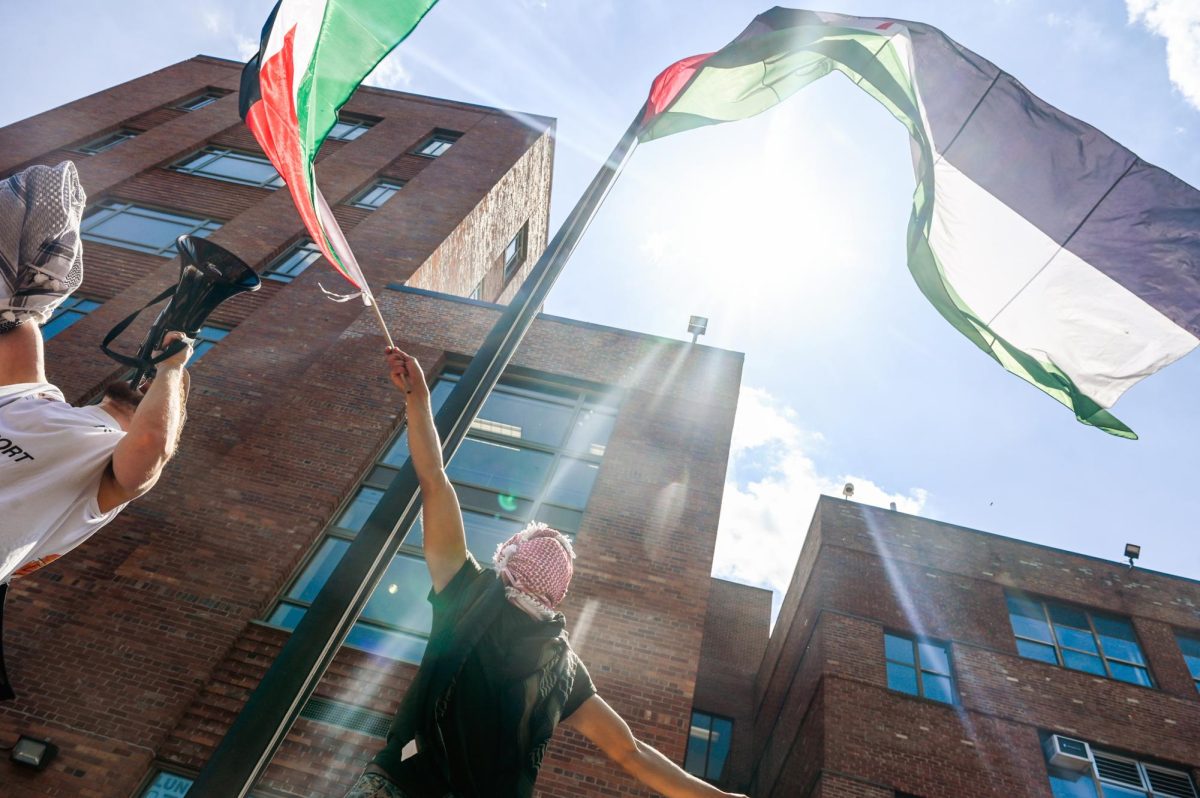Asmat Pikar is looking for real estate. He has checked out some places near the Capitol. He wants something with a lunch crowd nearby. A year ago, Pikar was not sure his Adams Morgan restaurant, Afghan Grill, would survive. Now, he is preparing to become a chain.
Pikar is one of many in the D.C. business community who says, despite record lows directly following September 11, year-later business has improved remarkably.
“We are doing very well,” Pikar said. “People came back.”
Pikar said he lost more than 50 percent of his business directly following the attacks, but now is doing better than ever.
“Business went because this is an Afghan restaurant,” Pikar said. “It was a sad situation and affected us very much, but D.C. people were very nice and helpful. They came back because they like me and my food,” Pikar said.
Pikar’s pick-up is not abnormal, said Barbara Lang, president of the D.C. Chamber of Commerce, who said business all over the city has improved. Events promoting tourism, the loyalty of corporate travel and new business from government work for homeland security have all contributed to the quick bounce back, Lang said.
“The District of Columbia has done amazingly well,” Lang said. “The Washington economy has rebounded better than other areas.”
Lang attributed the success to “the resilience of the community.” She said she believes the economy has come back by between 70 and 80 percent after initial losses.
Feeling the biggest improvement is D.C.’s hospitality industry, which was hurt the most by the attacks, Lang said.
According to a Chamber of Commerce study conducted directly following the attacks, Washington’s hospitality business lost more than $24 million between Sept. 11 and Sept. 30, 2001, the end of the fiscal year. Non-hospitality business reported a 10 to 30 percent drop in revenue from the same time the previous year.
Liz Debarrios, director of communications for the Hotel Association of D.C., said the hospitality industry has rebounded more quickly than expected.
Debarrios said there was a 25 percent occupancy low directly following the attacks. She said hotels experienced a 92 percent occupancy high in April during cherry blossom season. Occupancy averaged out at about 47 percent since the attacks, only one point lower than last year’s average,
Debarrios said.
She credited the quick recovery to “a big effort by the Washington Convention and Tourist Association.”
Restaurant weeks, discounts at local restaurants, and public service announcements by celebrities were part of the program to bring tourists back to D.C.
In November, Debarrios told The Hatchet 10,500 of 26,000 hotel employees were laid off directly following the attacks. Though official numbers have yet to be complied, Debarrios said most employees were re-hired.
“Most employees were brought back after a month or two,” Debarrios said.
Joel Manyan, director of sales and marketing for the Washington Court Hotel, said the hotel was forced to lay off a few employees after the attacks.
“Directly after Sept. 11 we had no occupancy,” Manyan said.
Manyan said he rehired all employees by January. He said the hotel’s location near the Capitol, is the bigest reason the hotel’s is year-to-date revenue is only barely under what it was at this time last year.
Manyan said a lot of their business this year came not from tourists, but from people coming into the city to work with the government.
“So many new issues have had some benefit,” Manyan said.
Lang agreed that new defense work has provided noticeable help to the D.C. economy.
“Homeland security employs more people,” Lang said. “There are more jobs and more sales tax revenue.”
Lang said though the District’s economy is doing better, it still faces some challenges.
“Folks around the country are still apprehensive about coming to the city,” Lang said.
Jale Penzo, owner of Branch Office Supply Co., Inc., located underneath the Watergate, said she is part of the community that has yet to recover. She said she lost almost 70 percent of her business after the attack and it has not picked up at all.
“I lost all tourists,” Penzo said.
Penzo said it is not only the terrorist attacks causing her losses. She said GW’s recent purchase of many area hotels has also contributed.
Penzo said she is going to wait to see how business goes this fall and then decide whether to close.
But for business owners like Pikar, the future looks promising. In addition to the a new Afghan Grill, he said he is planning to open a restaurant in his hometown of Kabul. He plans on calling it Washington Grill.






